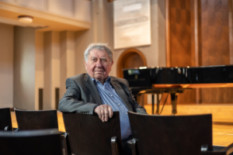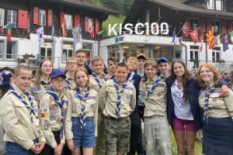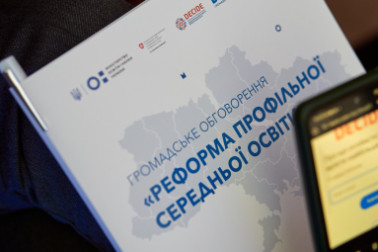The scout movement encompasses the whole world in its desire to make it a better place. It should be a world where people realize themselves as individuals and play a constructive role in society. This is an important mission consistently pursued by the World Organization of the Scout Movement (WOSM).
The reason for the interview with the representatives of the scouts was an important event for Ukrainian scouts - their participation in Camp Alpine by the BSA, located in Swiss Kandersteg. However, the conversation covered a much wider range of topics, and we were able to discuss other important events and changes in the World Scout Movement, including the transition of NOCU to the European region, potential positive consequences of such changes, as well as the history and present of Ukrainian scouting.
We are grateful to Olena Sakharova, the leader of Ukrainian Scout Groups in Gdansk, Poland, and Selby Chipman, a member of the inaugural class of girl scouts from Formation 219 Old North State Council in Oak Ridge, for sharing all the details with us.
And to start with, let's note that Ukrainian children had the opportunity to go to the camp thanks to the efforts of Selby's team, who organized fundraising for Ukrainian scouts.
What values and goals of WOSM would you, Selby and Olena, personally like to highlight? How would you formulate the main mission of the movement?
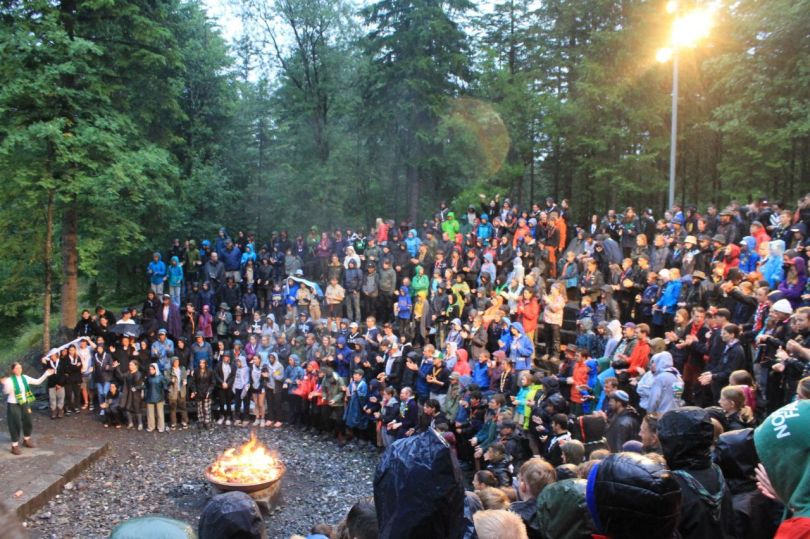
Selby:
For scouting in America, one of the main missions is the desire to teach young people to be servant leaders and make a contribution to the society in which they live. We want to touch every aspect of a person and bring them together so that people can feel a connection to a specific source. And indeed, this is the main mission of the worldwide Scout Movement.
We aim to contribute to the education of young people by using what we call the Scout Law and the Scout Oath, which we repeat together. This helps connect everyone with their own country, brother scouts, themselves, and with God.
Olena:
Yes, for me, it's also important to emphasize that the mission of World Scouting is to educate young people through a value system based on the Scout Promise and our Scout Law. We aim to build a better world where people not only play a constructive role in society but also realize themselves as individuals. In principle, this can characterize absolutely everything we do.
Is the Scout Law and Promise the same for all scouts around the world?
Olena:
Yes, they are the same for all countries. Of course, there may be slight differences in translation and adaptation to other languages, just as there are certain cultural differences in the scouting program of different countries. But overall, the mission of the scout movement is universal because it is close to many nations and countries. Our values, principles, and morals are shared by all.
What are the main centers of scouts in the world that you would like to mention?
Selby:
The World Scout Movement includes the World Scout Committee as the executive body based in Geneva, which is essentially the "board" of WOSM, the World Scout Conference as the highest legislative body, and the World Scout Bureau as the WOSM secretariat located in Malaysia, Kuala Lumpur.
The World Scout Bureau headquarters is based in Kuala Lumpur and currently has offices in five regional divisions: European, Arab, African, Asia-Pacific, and Inter-American.
Each region mirrors the global WOSM structure and has its own Regional Scout Committee, Regional Scout Conference, and Regional Scout Bureau. Additionally, in every country, there is a National Scout Organization.
The European region headquarters is in Geneva, and a key location for Boy Scouts of America is in Texas.
Olena:
The office in Geneva focuses more on administrative work and supporting all programs implemented in Europe, including overseeing the activities of the center where the camp we visited, Camp Alpine in Kandersteg, took place. Global management and coordination of the scout movement take place in Geneva, and the office representatives have connections all around the world, traveling to different countries. This helps unite all scout centers.
Unfortunately, in Ukraine, there is currently no permanent office for NOCU, but we are actively working on its establishment, seeking financial and institutional support. The governing body is the National Council of NOCU, whose members, including the International Commissioner, represent our organization at global scouting events.
Tell us about the changes currently happening in the structure of scouting due to the war in Ukraine?
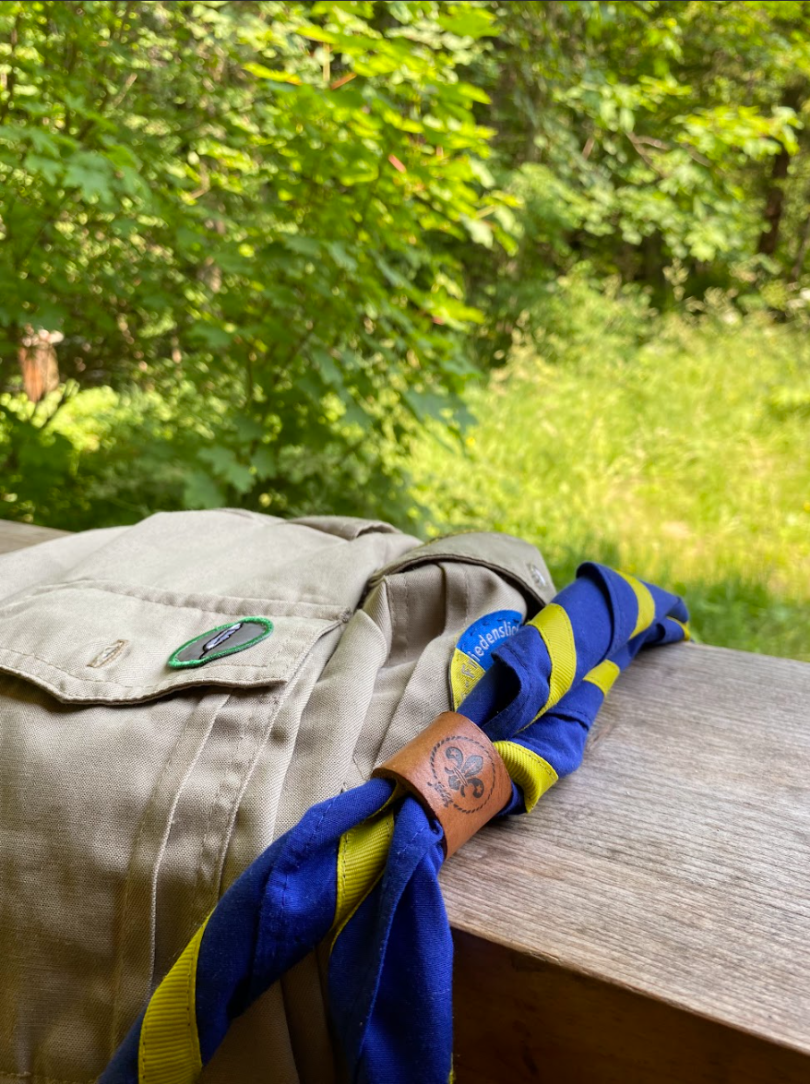
Olena:
Since October 1, 2023, Ukraine has become an official and full-fledged member of the European region. From the inception of NOCU until the full-scale Russian invasion of Ukraine, our NSO was a member of the Eurasian region, which included 11 other countries in Eastern Europe and nearby Asia. After the escalation of the geopolitical situation in the region, several NSOs, including the Ukrainian one, reached out to the leadership of the Region to find a solution to the current complex situation. In turn, the regional scout committee of the Eurasian region formulated a request for operational support in finding ways to resolve the acute problems that arose in our region.
This led to the formation of a contact group specifically for Eurasian affairs. It was a fairly lengthy process that concluded in September of this year. Now, it has been officially decided within WOSM that the activities of the Eurasian region will be suspended, and the Ukrainian scouting movement will become a part of the European region.
What do these changes mean for the Ukrainian scout movement?
For us, this is a great opportunity not only to find new colleagues and partners and establish fruitful collaboration with European countries but also to increase visibility, capacity, and ultimately, to successfully embark on a path of long-term strategic growth and European integration. We are very grateful to the contact group that helped in this matter because it is indeed critically important for us.
A question for Selby. I know that you raised funds for Ukrainian scout children. Can you tell us about this activity and what the funds were directed towards?
Selby:
I have been working at Camp Alpine for two years now, and when we were told that Ukrainian scouts would be joining us, we organized a fundraising effort to ensure they had the opportunity to participate. So, we posted fundraising announcements on various social media platforms and different crowdfunding websites.
My troop, a group of girls I lead when I'm at home involved in scouting, raised money both within our troop and with sister troops. It was a great team effort. We reached out to family members and our community representatives as well. As a result, we managed to provide 33 Ukrainian scouts, including leaders, with the means to attend the Alpine camp. When we achieved this, I was really pleased. We all had a great time together at the camp, and it was there that we were able to personally meet Olena.
Olena:
I would like to point out that to run a program in Alpine Camp, a lot of people put in considerable effort and raised a substantial amount of money. There are many diverse and high-quality activities in the camp that need to be funded. While organizing programs at any camp, we try to think creatively and find ways to provide an equal experience for all scouts without focusing on the cost. To ensure this equal experience, scouts from around the world also seek donor support. In the United States, there is a strong culture of donations, both to the Scout Movement and individual programs.
What does the program at the Alpine Camp include? As far as I know, there's a wide variety of activities there. What did you like the most?
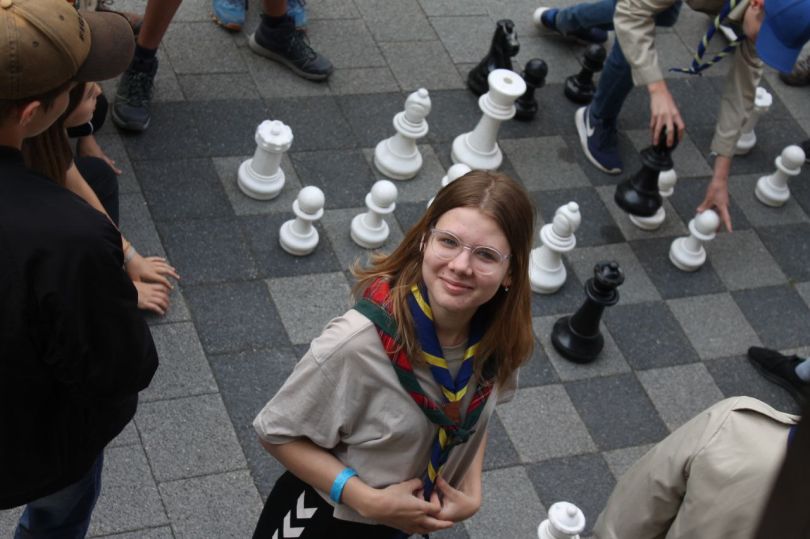
Olena:
Yes, there were a lot of activities, and it's a fantastic, action-packed program where kids can explore their potential and learn many things.
Selby:
The best thing about it is that each child can choose what they want to do and make it their own experience. This way, every child feels like they received something special that they enjoy.
For example, I lead swimming sessions in the pool and teach water lifesaving skills, which has always been my favorite activity. But, honestly, it's very difficult for me to pick just one favorite activity from all the options at the camp. There are countless amazing activities. You can engage in STEM, journalism and public speaking, sports, or even participate in extreme adventures. We went on hikes and did rock climbing in the Alps!
It's all about character development and community building, a civic component that helps shape one's personality. The camp has it all, from physical development to acquiring a wide range of skills that are useful in the real world.
If I had to pinpoint what I liked the most, it would be simply working with the kids and helping them figure out what they enjoy doing.
I was especially delighted when I worked with Olena and her team of remarkable scouts. They wanted to do a wide range of things, and I wanted to focus on helping them determine their top priorities and understand what they wanted to do the most. I think that was the best part of my time at the camp.
Olena:
Thanks to Selby, the children at the camp had the opportunity to learn various swimming styles and take speed tests. Our kids also enjoyed experiments related to chemistry, engineering, modeling, and other interesting activities.
Each child could choose three activities, denoted as A, B, and C. They spent about an hour in each block, then moved on to the next one with a different scout leader. This way, they rotated through different activities.
There was also a special High Adventure program for children aged 14 and above, which included exciting day-long mountain hikes with overnight stays and swimming. In general, it's a very intense and active program designed exclusively for older children.
What did Ukrainian children like the most?
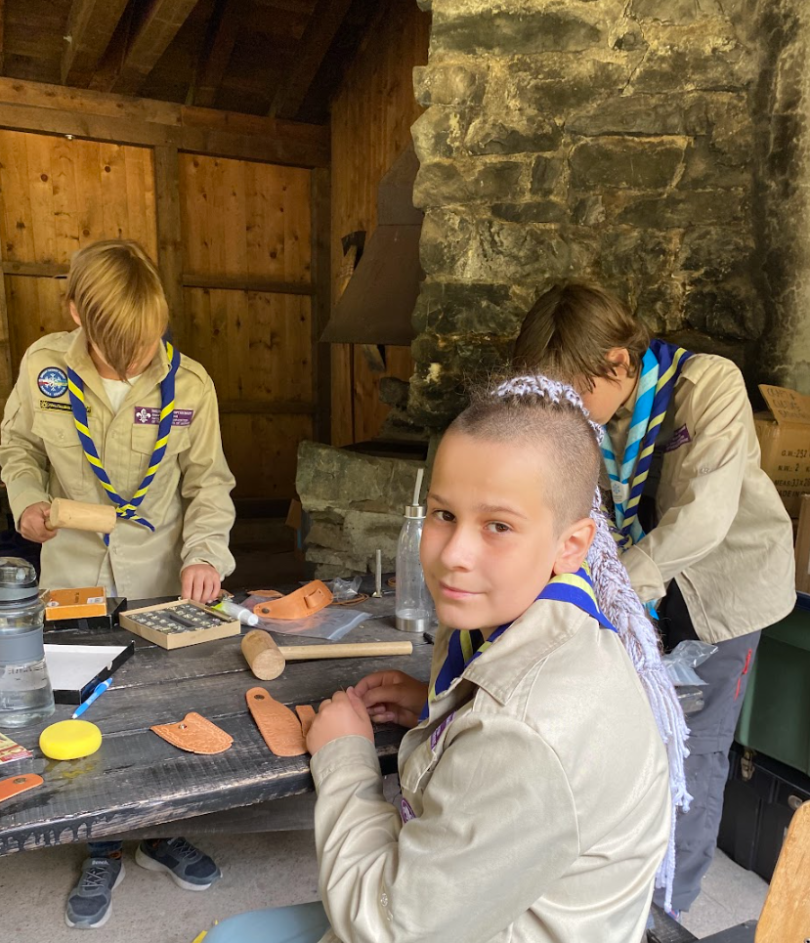
Olena:
The woodworking masterclasses were a big hit. Kids could create various things, from sculptures to small crafts. The boys particularly enjoyed archery and using special firearms for shooting. Everything was absolutely safe and well-organized. Our children received a lot of praise because they quickly acquired these skills.
Interestingly, even children who had just joined scouting wanted to try everything. For the youngest ones, aged 10 to 12, there were a lot of activities available. Our scouts were very impressed, as were the leaders, because in those six days, which may not seem like a long time, they had many opportunities to try out a variety of activities they were interested in and see everything they wanted to.
Who teaches children all of these activities? Do you need people with specific expertise to teach them?
Selby:
Typically, the leaders who teach these activities either have extensive experience in these topics and have been trained in them or they already have some certifications and more knowledge in the specific area they are teaching. It's not the case that, for example, journalism is taught by professional journalists and engineering is taught by engineers.
When everyone arrives at the camp, the leaders have a week to prepare, and they undergo training in various special activities. But when it comes to life-saving skills, the leaders must be certified and have experience, as it's a significant responsibility.
Similarly, for the unique high adventure program, only certified and experienced staff work there.
Alright, thank you. Let's go back to Ukraine. How long have scouts been in Ukraine?
Olena:
Scouting in Ukraine probably dates back to the early 20th century when it was becoming popular in Europe. The only but significant obstacle that hindered its widespread adoption was the arrival of Soviet rule. At that time, scouting activities were either completely or partially dismantled. In other words, genuinely scout organizations disbanded, while others operated underground or in emigration. Some "scouts" we know today as "pioneers." In reality, the Soviet system had very little in common with scouting.
Nevertheless, Ukrainian scouting, despite all this, continued to develop, even if it was mainly in emigration. Then, when the USSR dissolved, and Ukraine gained independence, it gradually began to revive.
In 2000, work started on organizing the scouting movement in Ukraine, and in 2007, the National Organization of Scouts of Ukraine, or NOSU, was established. Within a year, NOSU was recognized by WOSM at the World Scout Conference in South Korea.
Today, scouting is actively thriving in Ukraine, despite all the challenges.
Are there Ukrainian scout groups in Poland now? Is this due to the full-scale war?
Olena:
Yes, this is the reason for the formation of such scout groups. When many families with children fled the war and needed assistance, UNICEF and various National Scout Organizations (NSOs) from different countries joined forces and launched the UAAct project aimed at helping refugees and Internally Displaced Persons (IDPs). Apart from Ukraine and Poland, neighboring countries like Hungary, Moldova, Slovakia, Romania, and countries from the other side of the border such as the Czech Republic, Lithuania, and Latvia participated in this project. We are grateful to NSOs from these countries for their willingness to be part of the project, as these states experienced a massive influx of refugees in the early months of the full-scale war.
As the program was built on the scouting method, many children became interested and decided to join the movement. It became intriguing for the kids and future leaders. For instance, I, as one of the leaders, knew nothing about scouting initially, but I became interested and joined as a volunteer during this project and later became a leader. Currently, there are 248 participants from Poland in the National Organization of Scouts of Ukraine (NOSU), and in Ukraine, 466 participants from the UAAct project have become scouts.
These numbers, however, are fluid because children move with their parents, some return to Ukraine, so the number of scouts may fluctuate.
A question for Selby: What are your impressions of Ukrainian children in general? Do you see any differences compared to scouts from the USA?
Selby:
Ukrainian children are among the most eager and interested. They wanted to do everything and get involved in all activities. You know, sometimes kids come to camp and are not very motivated to do things or participate enthusiastically. We were a bit surprised by how Ukrainian children eagerly seized every opportunity to do something, learn something, and try something new. They did it with great enthusiasm and paid a lot of attention to it.
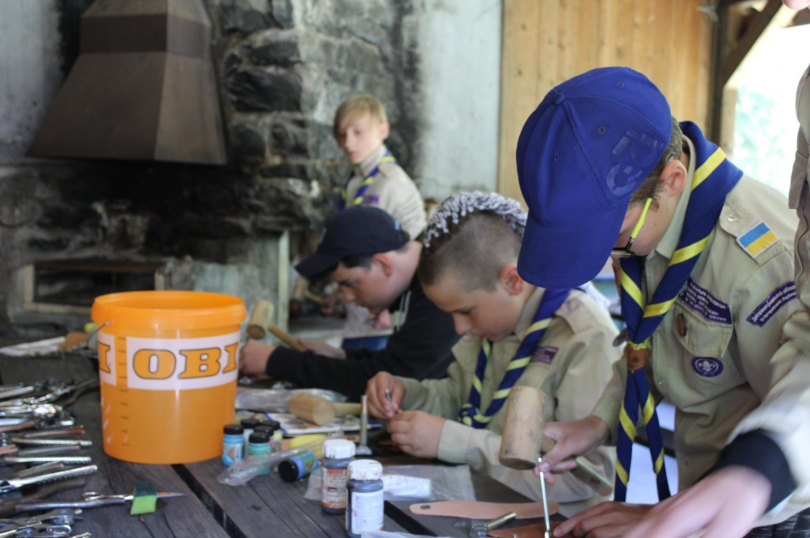
Even the language barrier, which some of them still had, although most knew English, did not hinder their enthusiasm and communication.
After the camp ended, during the summary, the leaders emphasized that Ukrainian children were the ones with whom no problems or issues arose. In general, it was very easy for the leaders to work with them because they were motivated. It's great that not only did the leaders teach Ukrainian scouts, but the children also taught the leaders and other kids about their language and cultural customs. It was a fantastic two-way learning experience.
Olena:
But I would say that this is a characteristic of scouting in general - it's a two-way learning experience because we learn a lot from our children. However, our children focused on this aspect a lot and paid a lot of attention to presenting their culture while respecting the cultures of others.
And a few words about Kandersteg itself – is it one of the traditional WOSM bases?
Selby:
Yes, the international scout center is permanent throughout the year, but our Alpine camp lasted for two weeks, and it happens every year.
Olena:
It's the first World Scout Center, founded by the very founder of the scouting movement, Lord Baden-Powell. It's one of the largest scout centers in the world and serves as a base where many programs and camps are held. For example, in addition to Boy Scouts and Girl Scouts, our camp had many international teams from all over the world. The volunteers working there also came from all over the world.
At that time, our coordinator from Poland, Margarita Levina, was volunteering there. It's such a diverse international environment. It's an incredibly valuable place for us, which provides a lot of opportunities and promotes the scout spirit.
I want to thank both of you, especially Selby and the entire American scouting movement, for supporting Ukrainian children and providing the opportunity to participate in such wonderful activities.
